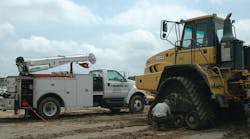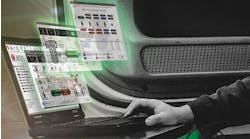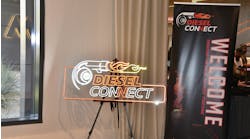A technician is wiring a machine. The code calls for 10 (AWG) American Wire Gauge wire and there is none in stock. His supervisor says: “Wire it up with 12 AWG and be quick about it.”
A technician is working on a tower during a critical plant shutdown. The attachment point looks dicey to him due to corrosion. There has been intense pressure from top management to complete the work on time. Should you have the come down, set up scaffolding and get a welder to redo the points?
But that would make the start-up late. The technician is already there and only needs about 30 minutes to finish up.
A truck with an important load for a new customer truck rolls into the shop on Friday with a problematic disk brake. The company’s dispatcher is all over you to get the truck out the door. The supply house tells you it will be Monday before brake parts come in. What do you do?
The Right Decision
Where do ethics come into play? At what point can a maintenance person stand up and say “no” that is not right.
Every company has insubordination rules that exempt the worker from following any instruction that would be unsafe. But what if you invoke an unsafe decision on a hunch? What would happen?
In the field of maintenance, we do not have much experience with such matters.
Ethics Codes
Doctors study medical ethics in school. They argue about end of life decisions, risks versus benefits of various drugs and therapies and confidentiality of patient records, among other things. If you read the doctor websites, you’ll find that ethics plays a major role in what doctors are reading and discussing. There is a well-regarded body of knowledge about professional conduct available to doctors.
Everyone likes to bad-mouth lawyers. But even lawyers discuss ethics. Topics include what is privileged information, what to do with certain information and how to ethically handle sticky human interactions ethically.
Other professions with codes of ethics include dentistry, social work, education, government service, engineering, journalism, real estate, advertising, architecture, banking, insurance and human resources management.
Generally, failure to comply with a code of professional ethics may result in expulsion from the profession or some lesser sanction.
Is there a Maintenance Ethics Code?
When maintenance people gather, do they discuss ethical issues? At maintenance tradeshows, is ethics a popular topic? I know of no board of maintenance ethics. Do you?
One place where maintenance pros are encouraged to step forward is in the airline industry. In the airline maintenance department there is a long standing tradition of grounding unsafe equipment. We frequent flyers are very happy there is.
Before we can even discuss the issue for other types of maintenance we have to agree on what is ethics and why it is important. More importantly, we need to determine the function of ethics in relation to our field.
Moral Principles
The term “ethics” comes from the Greek word “ethos,” which means character. This is a great start to begin the discussion of maintenance ethics since most people would agree that maintenance people are characters.
Ethics is two things. First, ethics refers to well-founded standards of right and wrong that prescribe what humans ought to do, usually in terms of rights, obligations, benefits to society, fairness or specific virtues. Secondly, ethics refers to the study and development of one's ethical standards.
This is according to sociologist Raymond Baumhart, based on survey of business people that asked: What does ethics mean to you?
The ethics conversation boils down to where is the line? Do we have well-founded standards of right and wrong?
If a manager tells a maintenance person to do something, at what point should that person should stand up and say “no,” doing that goes against my moral principles? How sure does the maintenance person have to be before his ethics kicks in?
Unlike the doctor or lawyer, the maintenance professional stands alone. There is no professional body, no body of knowledge and no maintenance ethics experts.
If we consider the tragedies like Deepwater Horizon oil spill, Bay City refinery explosion and others, we should ask were there maintenance professionals there who wanted to do the right thing but were either explicitly or implicitly silenced.
These are questions that have real world consequences.
To help answer such questions, I suggest a custom wristband for maintenance personnel: WWAMMPD (What would a moral maintenance professional do?)




